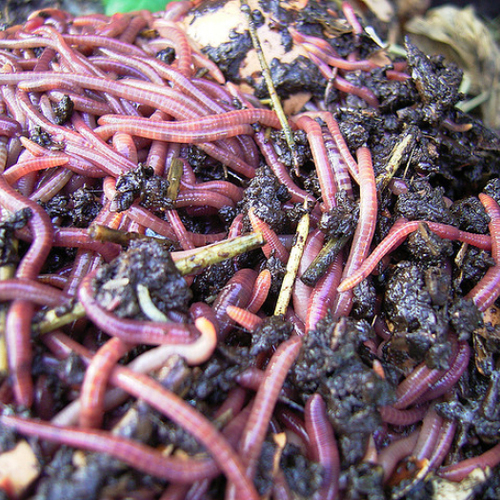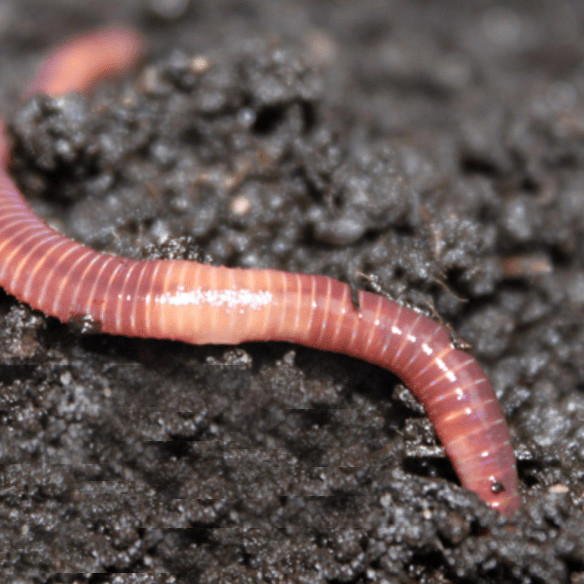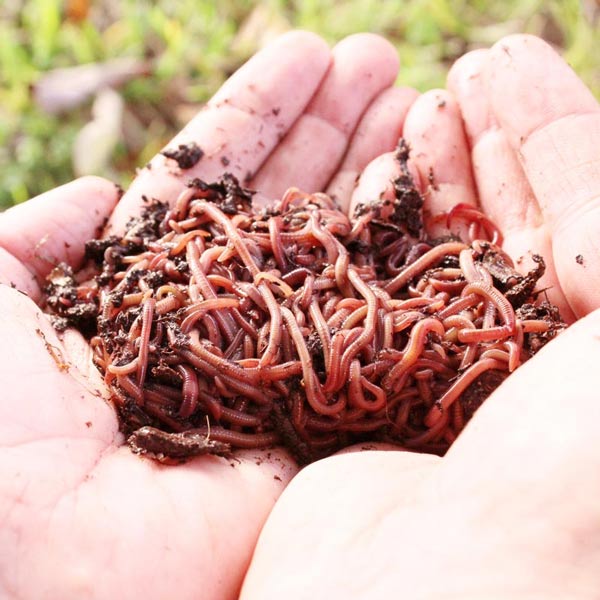Nutrient-rich red worms: Ideal for soil health
Wiki Article
Why Red Wigglers Are Important for Chemical-free Farming
Red wigglers play a crucial function in natural farming, mainly through their unique capability to disintegrate natural materials and improve dirt wellness. Their activity not only improves the soil with vital nutrients yet also promotes a flourishing community essential for lasting farming. Furthermore, the physical processes they participate in, such as oygenation and dampness retention, add significantly to boosted plant returns. Nevertheless, the extent of their effect on agricultural practices and dirt biology elevates appealing concerns regarding the future of natural farming. What ramifications might this have for farming approaches?Duty of Red Wigglers in Soil Wellness

In addition, red wigglers enhance soil framework by creating networks as they burrow. These networks improve oygenation and water infiltration, promoting a much healthier origin environment. Their task likewise helps in keeping optimum dampness degrees, which is critical for healthy and balanced plant growth.

Benefits of Worm Spreadings
Worm castings, the nutrient-rich waste matter created by red wigglers, work as an effective modification for natural farming. These castings are abundant with necessary nutrients such as nitrogen, phosphorus, and potassium, which are crucial for plant development. Unlike synthetic plant foods, worm castings release nutrients slowly, offering a steady supply with time and minimizing the danger of nutrient leaching and runoff.Furthermore, worm castings boost dirt framework and aeration, advertising much healthier origin systems. Their high raw material material improves moisture retention, allowing plants to better stand up to drought conditions. Furthermore, worm spreadings include beneficial microbes that sustain plant health by reducing pathogens and boosting vitamins and mineral uptake.
The application of worm castings can bring about boosted crop yields and boosted top quality of fruit and vegetables, making them a vital resource for natural farmers. Their usage additionally aligns with lasting farming techniques, adding to dirt fertility without the negative environmental effects associated with chemical plant foods. Overall, the consolidation of worm spreadings into farming methods cultivates a much more durable and productive environment, underscoring the value of red wigglers in organic farming systems.

Enhancing Nutrient Cycling
(red wigglers for sale cheap)Nutrition cycling is an important procedure in natural farming, and the assimilation of red wigglers plays a critical role in enhancing this cycle. As red wigglers consume decaying natural matter, they secrete nutrient-rich spreadings, which are teeming with beneficial germs.Furthermore, red wigglers help to accelerate the mineralization of nutrients, transforming them from inert forms into bioavailable types that plants can absorb. This process is important for maintaining dirt fertility and promoting healthy and balanced plant growth. The existence of red wigglers also motivates a diverse soil ecological community, fostering a balance of nutrients that supports different plant types.
Improving Soil Framework
The enhancement of soil framework is crucial for cultivating a healthy agricultural community, and the task of red wigglers significantly contributes to this enhancement. These earthworms play a vital duty in aerating the soil and developing a network of channels that promote water infiltration and origin infiltration. As they burrow via the soil, red wigglers damage up compressed layers, allowing for much better oxygen exchange and advertising microbial activity.In addition, the raw material created from their waste, referred to as vermicast, boosts soil gathering. This process produces stable globs of soil bits, enhancing soil porosity and minimizing disintegration (red wigglers). The existence of red wigglers also motivates the development of advantageous fungal networks, which are essential for nutrient uptake by plants
Supporting Sustainable Practices
Incorporating red wigglers right into natural farming techniques not only enhances dirt health however likewise promotes sustainable farming techniques. These earthworms play a vital function in nutrient cycling, transforming natural waste into useful garden compost that enriches the dirt. By making use of red wigglers, farmers can efficiently minimize reliance on synthetic plant foods, thereby minimizing chemical runoff and its damaging results on communities.Moreover, the consolidation of red wigglers encourages the practice of recycling natural products, such as cooking area scraps and farm waste. This waste reduction strategy not just lowers disposal costs yet also promotes a closed-loop system where nutrients are continually returned to the soil (red wigglers). Such techniques are important in minimizing climate modification, as they boost carbon sequestration and lower greenhouse gas exhausts
Furthermore, red wigglers boost water retention in the soil, which is essential in times of drought. Their burrowing tasks develop networks that allow water to pass through much deeper into the ground, hence promoting reliable water usage. Inevitably, integrating red wigglers into chemical-free farming not just sustains biodiversity however additionally lines up with the principles of sustainable agriculture, offering an alternative strategy to food manufacturing.
Conclusion
Finally, red wigglers play a vital function in chemical-free farming by substantially boosting soil health and wellness and fertility. Their capacity to decompose raw material and generate nutrient-rich castings promotes a growing microbial community, which is crucial for nutrition biking. In addition, the tunneling activities of these worms improve soil structure and aeration, visit the website facilitating far better water seepage and origin development. Therefore, the integration of red wigglers into agricultural methods is vital for advertising sustainability and enhancing overall soil quality.Report this wiki page